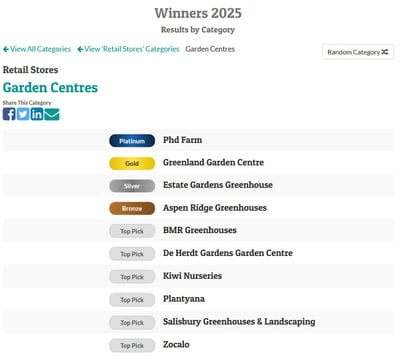Welcome to PHD Farm
PHD Farm is a small urban farm in Edmonton, dedicated to providing fresh produce and high-quality seedlings to our local community.
Running PHD Farm is a labor of love, handled entirely by one dedicated individual. From preparing our own soil mix to seed sowing, growing and harvest, managing the farm including all the permits and licensing, and more, it’s all done by one person. But while the workload can be overwhelming, especially as a person with disabilities, my passion for growing plants and offering organic plant and produce in reasonable price to the Edmonton community drives me me to tackle each task one step at a time.






Our Dedication to the Craft
PHD Farm embraces the art of nurturing and cultivating with a deep commitment to making your shopping experience both enjoyable and efficient. Our store is a haven for those in search of the perfect plant for your garden or fresh Non-GMO Organic Produce —affordable, enduring, and beautiful. Every plant is meticulously grown from seed and hardened off to provide the highest-quality and best successes in your garden. Our produce is hand picked and bagged without any processing and kept in optimal conditions even in the hottest days. We aim to meet your every need, ensuring you find exactly what you’re looking for. Visit us today for a unique and heartfelt shopping experience at PHD Farm!
Front yards in bloom
PHD Farm won first place in the 2024 Edmonton front yards in bloom
Food For Tomorrow - Edify Magazine
Edify magazine published an article by Natasha Chaim featuring PHD Farm click the image to read
Community Vote
PHD farm just wan the 2025 community vote in 3 categories






Meet our team


Avi
Owner/Founder
Avi is the visionary owner and founder of PHD Farm, a thriving agricultural enterprise dedicated to sustainable urban farming practices. Despite being diagnostic with severe and chronic mental health disability including sever cPTSD, major stress, anxiety disorder, major depression, grief, Sever agoraphobia and OCD, Avi was able to successfully transformed his yard to a flourished urban farm. PHD Farm not only produces a diverse range of high-quality crops but also implements eco-friendly techniques that promote soil health and biodiversity.
Pest control team


Ladybug
Head of the Aphid control unit, the ladybug love to eat aphids during its entire life cycle the larva the pupa and the adult will devour aphids. The ladybugs requiter a place to hide from extreme weather so make sure you have some mulch for it.


Lacewing
While the Adults mainly eat pollen the Lacewing larva eats aphids, mealybugs, spider mites, leafhopper nymphs, moth eggs, scale, thrips, and whiteflies. The larva apatite is with no equal making him a super efficient team member


Harvestmen, often referred to as daddy longlegs, are fascinating arachnids belonging to the order Opiliones. Unlike true spiders, they do not produce silk or venom, making them harmless to humans. Harvestmen play an essential role in ecosystems by contributing to the decomposition process


Dragonflies are incredible allies when it comes to pest control in the garden. These agile insects are natural predators, capable of consuming vast quantities of troublesome pests such as mosquitoes, aphids, and gnats. Carrying out their aerial patrols, dragonflies can capture and devour their prey mid-flight.


Nematodes
Nematodes are tiny, worm-like organisms that play a vital role in biological pest control. These beneficial nematodes seek out and infect various soil-dwelling pests, such as grubs and larvae, effectively reducing their populations.


Parasitic wasps
Those tine wasps are your friends they lay their eggs inside other insects to complete their lifecycle. those eggs hatch and the larva eat the insect from the inside out.
Harvestmen
Dragonfly






Although this team member only comes to work in special occasions he play a great part in eliminating mice and scaring other animals like magpies and squirrels that can damage the plants
commonly referred to as the aphid midge, Aphidoletes known as a beneficial insect which plays a crucial role in controlling aphid populations in various ecosystems. Its larvae, which are incredibly adept predators, have a voracious appetite for more than 80 different species of aphids.
Falcons
Aphidoletes
These beetles are very shy and typically come out at night and hunt slugs, worms and other insects. It doe snot like to be handled and will releases a defensive odor reminiscent of rotten fruit. so let it hide in so mulch and rest till night shift.
Purple-Rimmed Carabus


Spiders
Garden spiders play a vital role in natural pest control, acting as voracious predators in our backyards. These arachnids, often seen weaving intricate webs, trap and consume a variety of common insects, including mosquitoes, flies, and aphids.
Pollination team




Honey Bee
Bumble Bee
Honeybees play a vital role as pollinators in the garden, significantly enhancing the growth and productivity of various plants. These industrious insects collect nectar and pollen from flowers, facilitating the transfer of pollen from one bloom to another.
Bumblebees are amazing pollinators in the garden, facilitating the growth and reproduction of a variety of plants. Their fuzzy bodies are covered in tiny hairs, which collect pollen as they move from flower to flower in search of nectar. This process not only aids in the transfer of pollen but also ensures the fertilization of plants.








Birds
Wasps
Butterfly
Ants
Birds are important for pollinators in gardens. Their vibrant colors and lively behaviors attract various species, making them excellent agents for pollination.
Wasps, often overlooked due to their reputation for being aggressive, however they play a vital role as pollinators in the garden. wasps visit a variety of flowers in search of nectar and protein sources. So just respect their space and let them work.
Butterflies play a crucial role as pollinators in the garden, contributing significantly to the ecosystem's health and diversity. As they flit from flower to flower in search of nectar, these delicate creatures inadvertently transfer pollen, aiding in the fertilization process that allows plants to produce seeds and fruit.


Mason Bee
Mason bees are exceptional pollinators that play a crucial role in enhancing the health of gardens. mason bees are solitary creatures that nest in small holes or gaps, often found in wood or masonry. Their unique foraging habits make them incredibly efficient: a single mason bee can visit hundreds of flowers in a single day,
Ants play a surprisingly vital role as pollinators in the garden ecosystem. As ants traverse the garden in search of nectar, they inadvertently collect pollen on their bodies and transfer it from one blossom to another, facilitating cross-pollination. This interaction helps enhance genetic diversity among plant populations,
Soil team








Ant nesting behavior can enhance soil aeration and nutrient cycling, fostering a healthier growing environment for plants.
Earthworms are remarkable creatures that play a crucial role in enhancing soil health in gardens. As they burrow through the earth, they create channels that improve aeration and drainage, allowing air and water to penetrate more deeply, which is essential for plant roots. Their natural digestive process transforms organic matter, such as dead leaves and plant debris, into nutrient-rich castings that serve as a natural fertilizer.
Fungi is important for enhancing soil health and overall garden productivity. By forming symbiotic relationships with plant roots, mycorrhizal fungi improve nutrient absorption, particularly phosphorus, which is essential for plant growth. These beneficial fungi also help break down organic matter, releasing vital nutrients into the soil and improving its structure and aeration. Furthermore, they can increase the soil's water-holding capacity, making plants more resilient to drought conditions. In addition to these advantages, certain fungi protect plants by outcompeting harmful pathogens in the soil. By incorporating fungal-rich compost or utilizing mycorrhizal inoculants, gardeners can create a thriving ecosystem that supports robust plant growth and sustainable gardening practices. Embracing the power of fungi not only fosters healthier plants but also promotes biodiversity, contributing to the overall vitality of the garden environment.
Fungus
Ants
Earth worms






